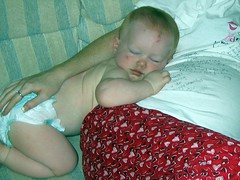 USA Today recently ran a story about the high profile success stories of adult men who grew up in single parent households, supported solely by their mothers.
USA Today recently ran a story about the high profile success stories of adult men who grew up in single parent households, supported solely by their mothers.
USA Today’s Sharon Jayson writes:
Conventional wisdom is that boys who grow up without fathers are at greater risk of problems, from doing poorly in school to substance abuse. So how does that account for the high-profile successes of standouts such as presidential candidate Barack Obama, Olympic swimmer Michael Phelps and others who were reared by single mothers?
The psychologist consulted for the piece suggested that young men raised by single mothers are not predestined to fail simply because they are raised in a non-traditional household. While not all sons will succeed in the same ways as Phelps and Obama, the risk of growing up with a single mom has more to do with financial strain.
The sociologist on hand delves further into the issue…
Another expert on fatherhood, sociologist Tim Biblarz of the University of Southern California-Los Angeles, says the evidence shows economics plays a significant role in the risk for negative outcomes, such as poorer grades and lower educational attainment, substance abuse or poor social adjustment.
“Those who grow up with single mothers with adequate socioeconomic resources tend to do well. The children of poor single mothers are more at risk,” Biblarz says. “Many of the results that say that kids are at increased risk for negative outcomes have to do with economics.”






